Higher enriched nuclear fuel being tested at Vogtle

Southern Nuclear recently loaded nuclear fuel with uranium-235 enriched up to 6 percent—higher than the usual 3–5 percent enrichment—into Vogtle-2 to test it through irradiation.

A message from Goodway Technologies
Optimizing Maintenance Strategies in Power Generation: Embracing Predictive and Preventive Approaches

Southern Nuclear recently loaded nuclear fuel with uranium-235 enriched up to 6 percent—higher than the usual 3–5 percent enrichment—into Vogtle-2 to test it through irradiation.

Gary Adkins
Subsequent license renewal (SLR) authorizes nuclear power plants to operate for an additional 20 years beyond the 60 years of the initial license (years 1–40) and the first license renewal (years 41–60). NUREG-2191, Generic Aging Lessons Learned for Subsequent License Renewal (GALL-SLR), and NUREG-2192, Standard Review Plan for Review of Subsequent License Renewal Applications (SRP-SLR), were issued in July 2017 and provide guidance for generic evaluation of plant aging management programs and reviews of SLR applications, respectively, by Nuclear Regulatory Commission staff.
The first SLR application was submitted to the NRC for review in January 2018. A total of 10 additional SLR applications addressing 20 operating units have been submitted to the NRC. Nine operating units have been approved by the NRC, and 13 units are under review. These 22 units do not have any issues, including operating experience issues, precluding them from achieving a renewed license.

Craig Piercy
cpiercy@ans.org
This month’s Nuclear News pays tribute to the people and projects that keep our nuclear power plants running.
In the nuclear industry, “life extension” is a venerable term that broadly describes the care required to sustain the safe and efficient operation of large, complex energy generation facilities for decades to come, some of which you will read about in these pages.
Of late, however, the general concept of life extension has also taken a firmer hold in our societal consciousness.
Whether we absorb it from Instagram videos about some Silicon Valley techie’s quest for immortality or sense it in one of the thousands of dryly written journal articles documenting our increasing ability to control and change life at the molecular level, the promise of extended life and health has universal appeal—and it’s never seemed more within reach than it does right now.
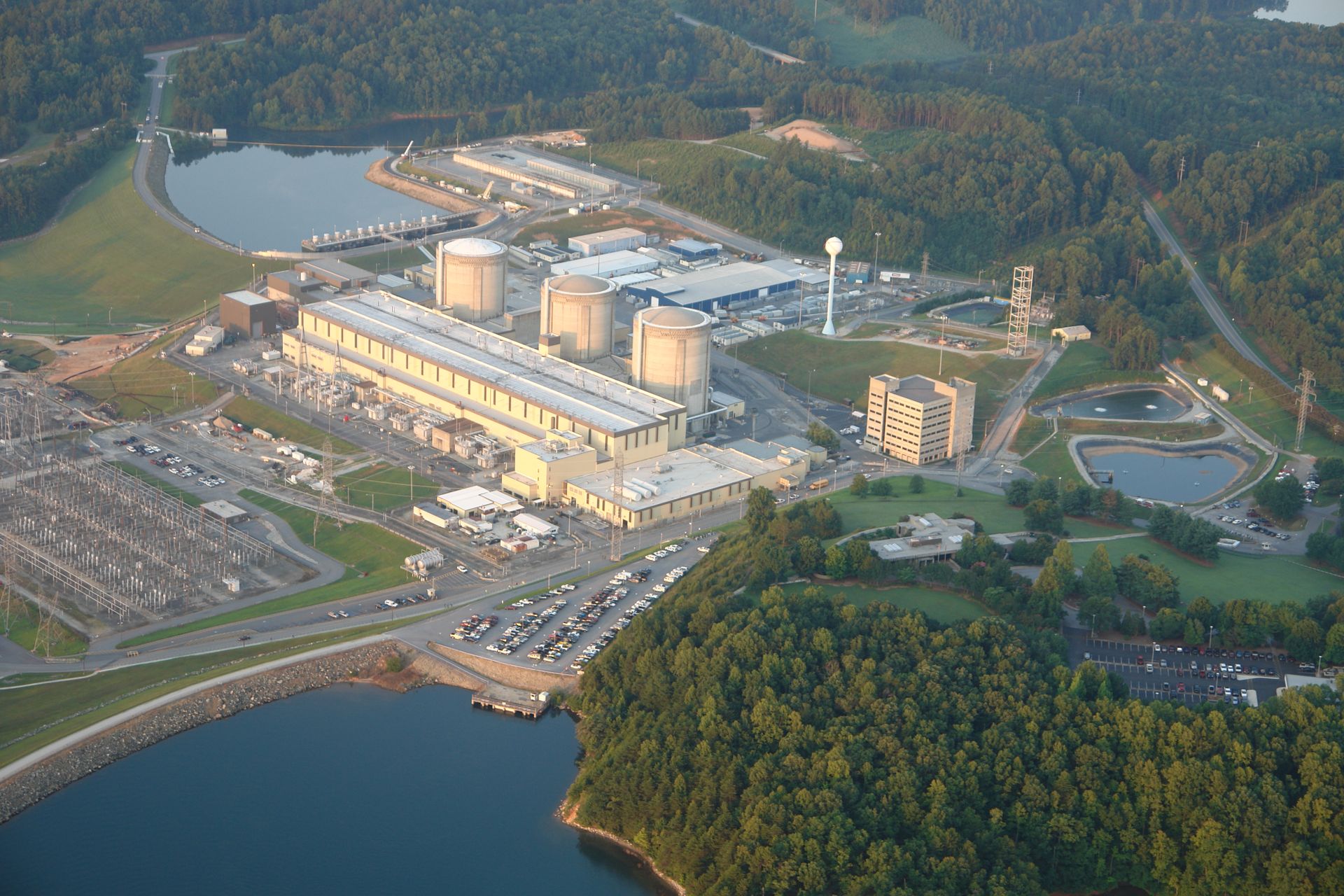
All three units at the Duke Energy’s Oconee nuclear power plant in South Carolina are now licensed to operate for an additional 20 years.
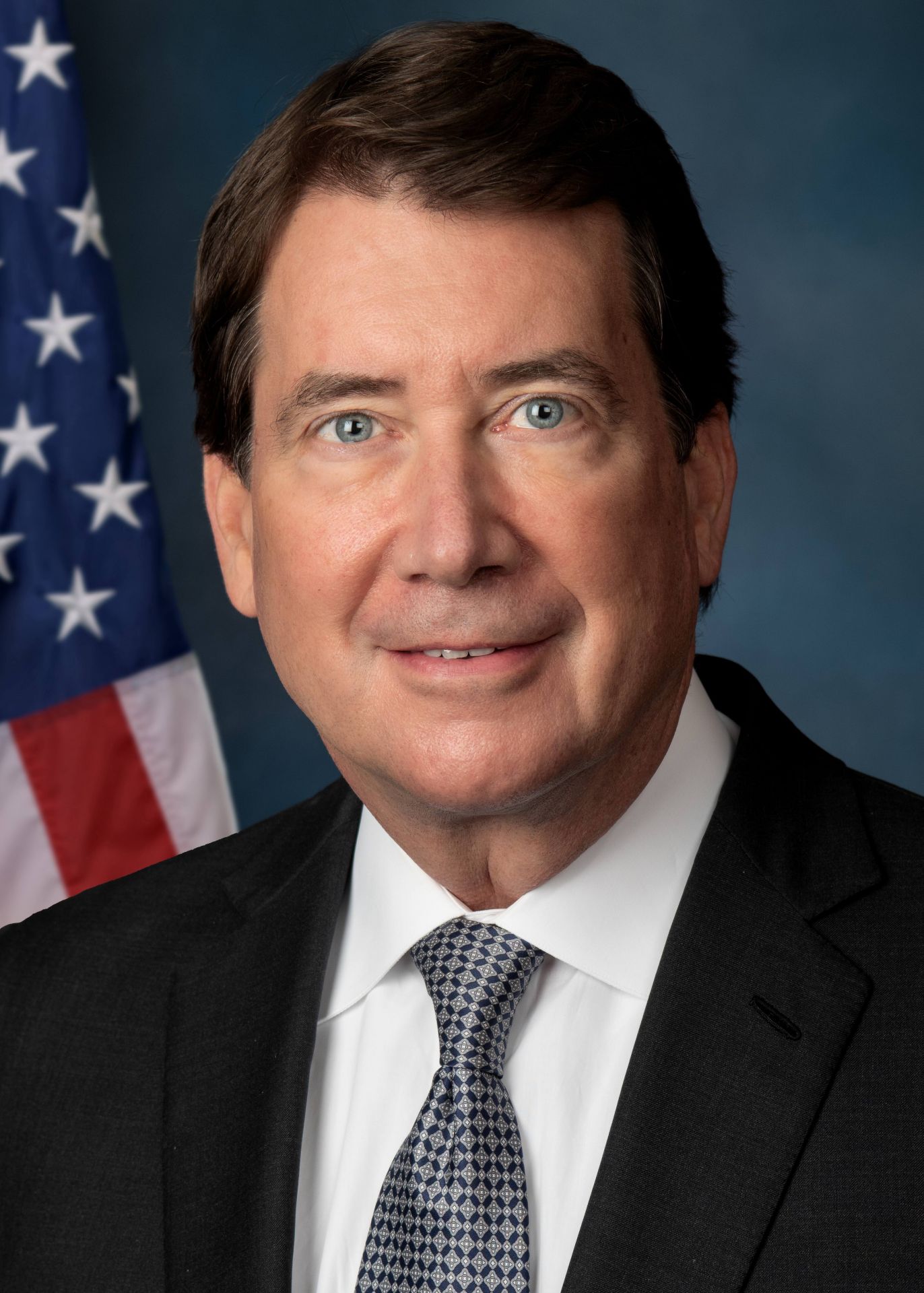
Hagerty

Blackburn
In a strongly worded opinion piece published by Power Magazine on March 24, Tennessee Sens. Marsha Blackburn and Bill Hagerty call for new leadership at the Tennessee Valley Authority to jumpstart its small modular reactor program.
The GOP lawmakers are looking to President Donald Trump and Energy Secretary Chris Wright to overhaul TVA’s board of directors to drive America’s role in the nuclear renaissance. TVA is the first and only U.S. energy company to obtain an early site permit for a small modular reactor, but the utility has not progressed on physical deployment of a unit since the permit was awarded in 2019.
The Nuclear Regulatory Commission has received a request from the state of Connecticut asking that the state be allowed to assume regulatory authority over certain radioactive materials within state borders.
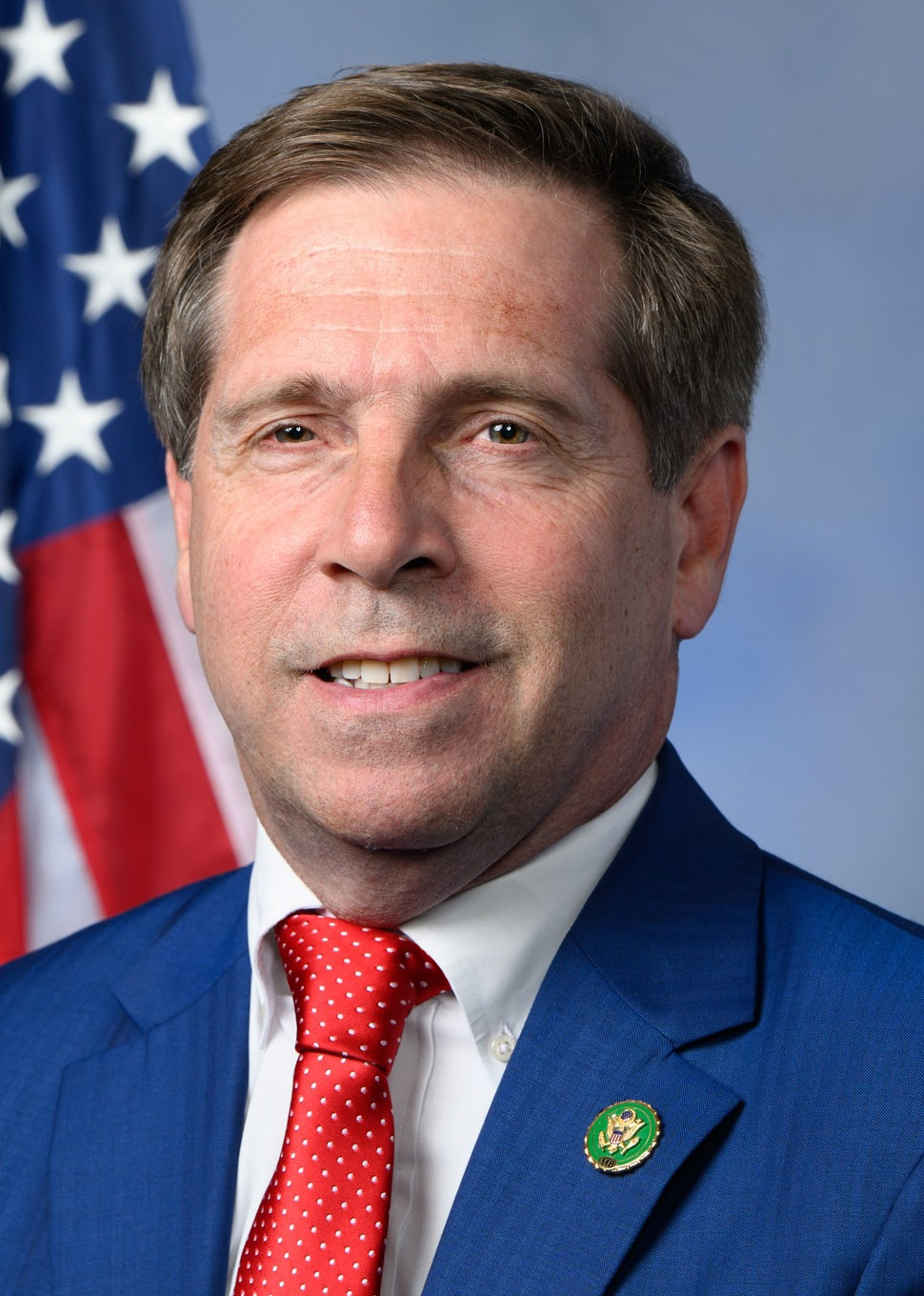
Fleischmann
U.S. Rep. Chuck Fleischmann is all about energy—specifically nuclear energy.
On March 20, the GOP congressman from Tennessee joined the official launch of Atoms for Appalachia, the new report from the Atlantic Council Global Energy Center that studied opportunities for deploying advanced nuclear energy in the area to spur economic development.
The council hosted a series of Atoms for Appalachia (A4A) workshops in 2024 in North Carolina, Pennsylvania, Tennessee, and West Virginia in partnership with the Breakthrough Energy Foundation. The sessions explored workforce demand, partnership opportunities, and innovation happening across the nuclear industry.
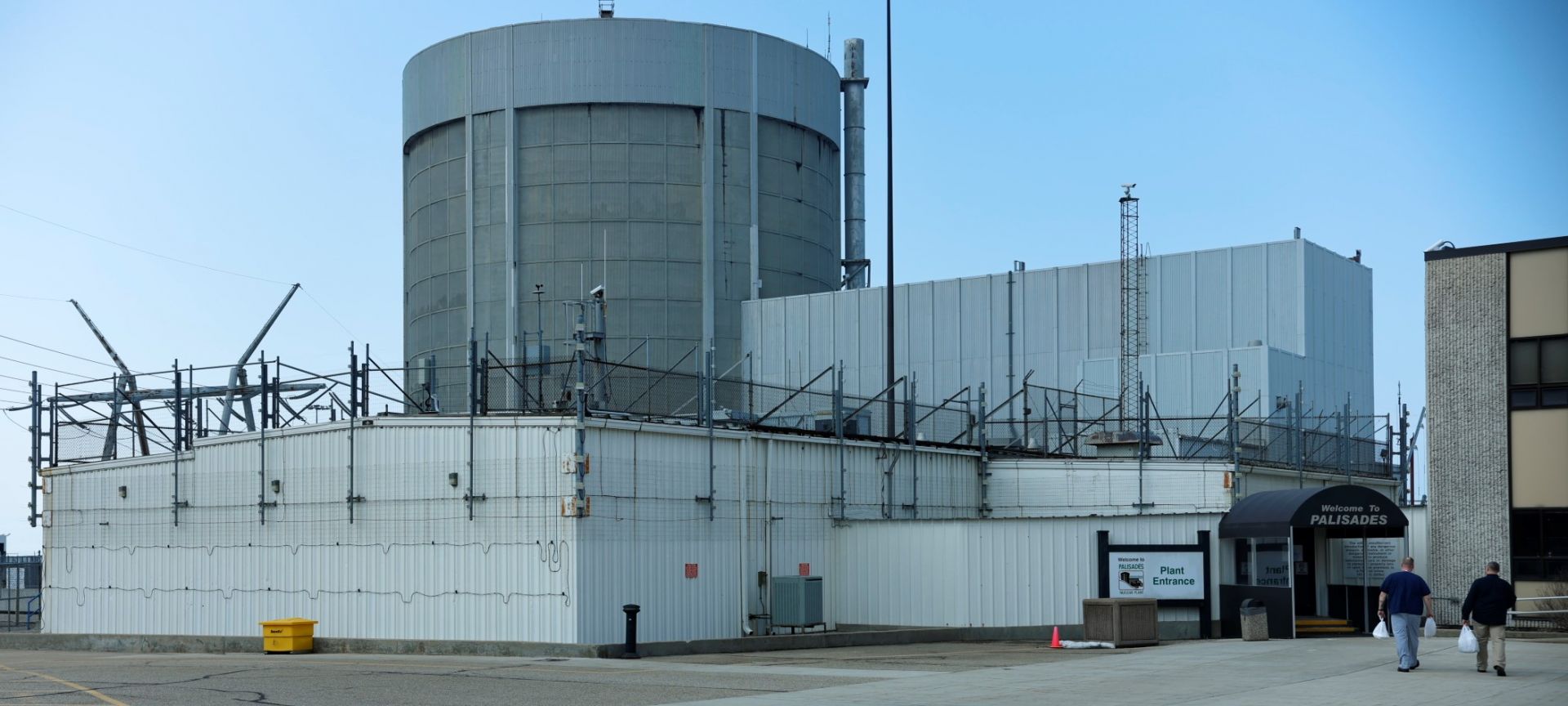
Energy Secretary Chris Wright announced this week the release of the second part of Holtec’s loan disbursement for the Palisades nuclear plant restart plans in Michigan.
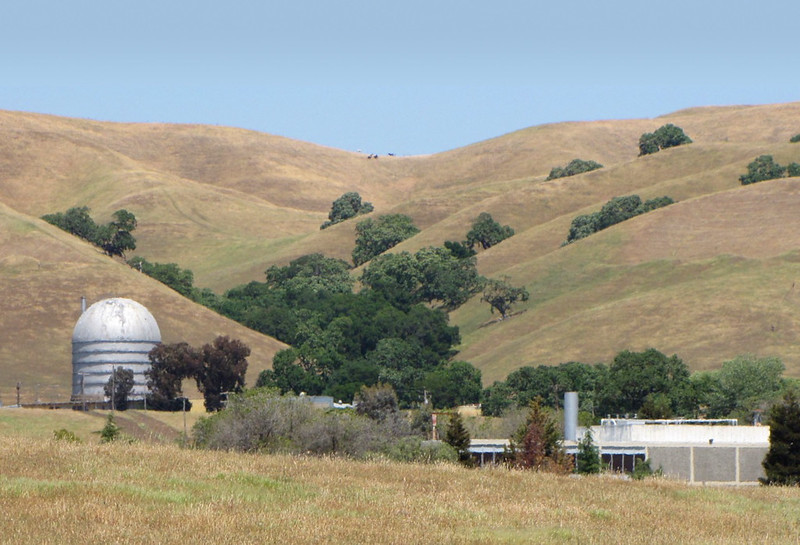
NorthStar Group Services has announced that it has closed on an agreement to acquire ownership of the Vallecitos Nuclear Center from GE Vernova and GE Hitachi Nuclear Energy for NorthStar's nuclear decontamination, decommissioning, and environmental site restoration.

It’s been a busy eight months, Mike King told the Nuclear Regulatory Commission in a recent hearing on the immediate and projected impacts of new federal legislation aimed at supporting the nation’s current nuclear energy renaissance.
Letters have been issued by the Nuclear Regulatory Commission to the nation’s 94 operating commercial nuclear reactors regarding their performance in 2024, the agency reported yesterday. The assessment letters are issued annually.

New commentary on the Nuclear Regulatory Commission’s proposed 10 CFR Part 53 licensing recommendations for advanced reactors argues that more work is needed to make the framework practical.

The Nuclear Regulatory Commission is gearing up to tackle an influx of licensing requests and oversight of advanced nuclear reactor technology, especially small modular reactors.

The U.S. Supreme Court heard oral arguments on Wednesday in the Nuclear Regulatory Commission’s licensing of Interim Storage Partners’ consolidated interim storage facility in Andrews County, Texas. Both the NRC and ISP petitioned the Supreme Court to review a decision by the 5th Circuit Court of Appeals that invalidated the NRC-granted license for the facility. Those two cases were consolidated into one, NRC v. Texas, which was heard by the court.
Aiming to deploy the nation's first small modular reactor, TerraPower has announced contracts for the final long-lead items needed for its Natrium unit, currently under construction in Wyoming.
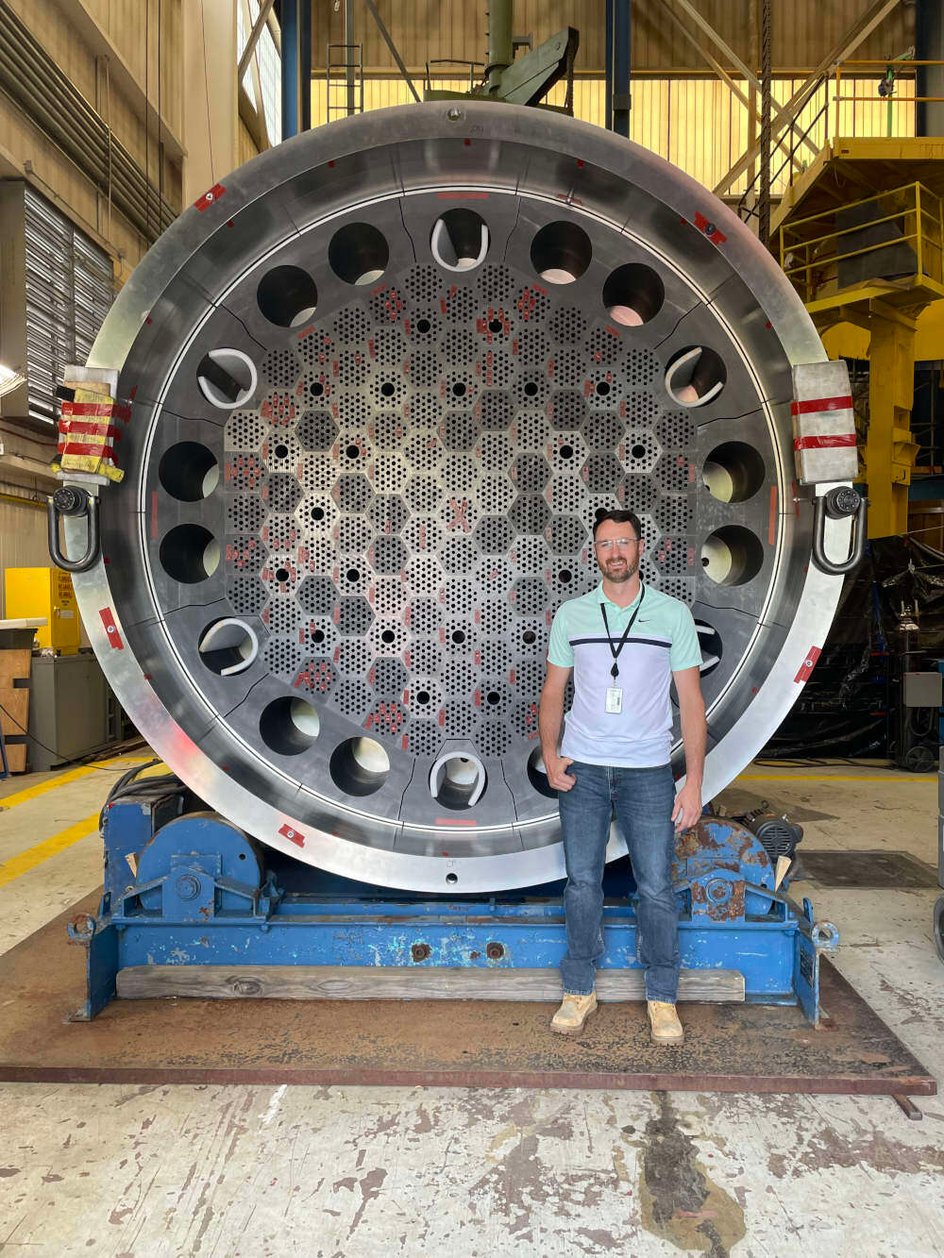
Penn State and Westinghouse Electric Company are working together to site a new research reactor on Penn State’s University Park, Pa., campus: Westinghouse’s eVinci, a HALEU TRISO-fueled sodium heat-pipe reactor. Penn State has announced that it submitted a letter of intent to host and operate an eVinci reactor to the Nuclear Regulatory Commission on February 28 and plans to engage with the NRC on specific siting decisions. Penn State already boasts the Breazeale reactor, which began operating in 1955 as the first licensed research reactor at a university in the United States. At 70, the Breazeale reactor is still in operation.
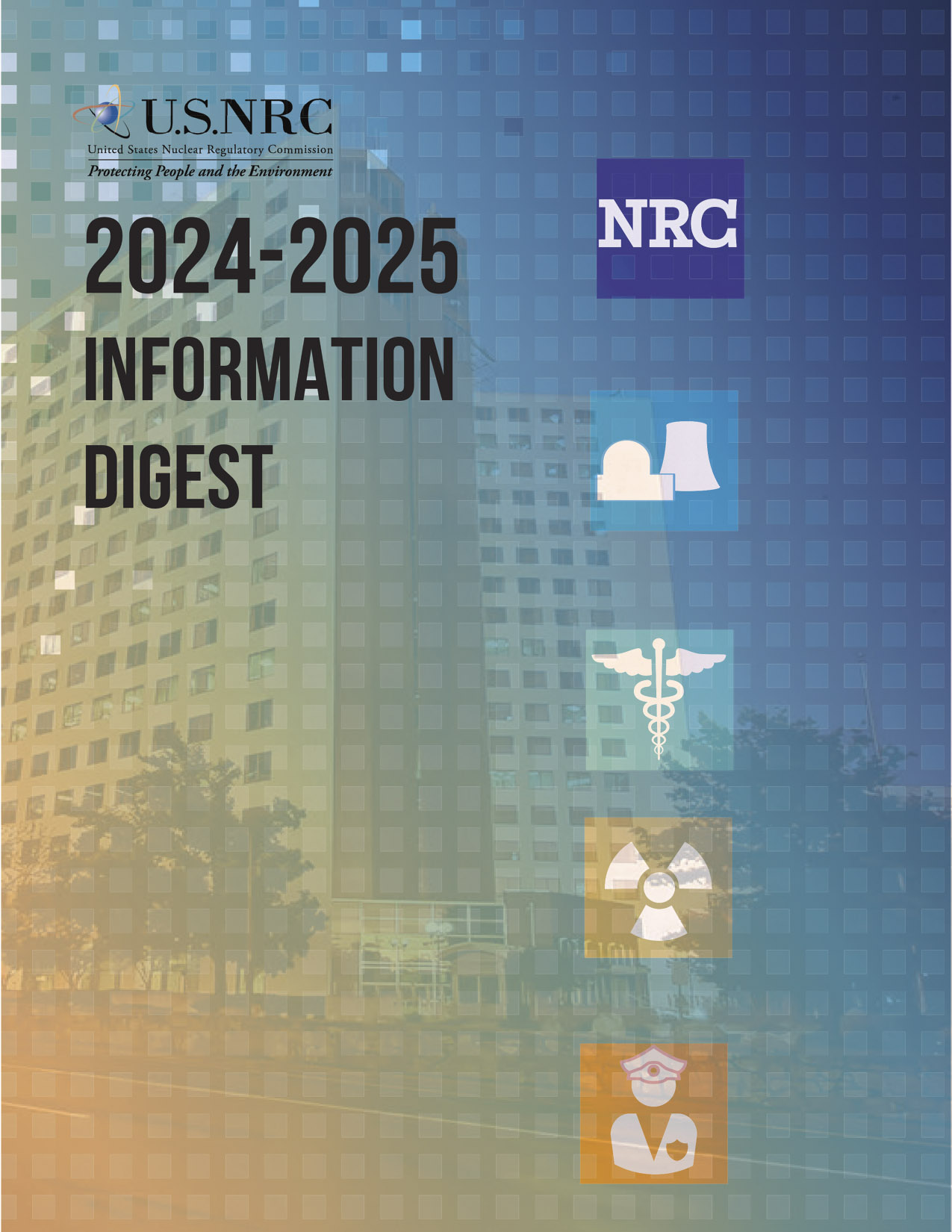 The Nuclear Regulatory Commission has published its 2024–2025 Information Digest, NUREG-1350, Vol. 35, which describes the agency’s responsibilities and activities and provides general information regarding nuclear-related topics.
The Nuclear Regulatory Commission has published its 2024–2025 Information Digest, NUREG-1350, Vol. 35, which describes the agency’s responsibilities and activities and provides general information regarding nuclear-related topics.
According to the NRC, the digest is intended to be a quick reference with important facts about the NRC and the industry it regulates presented publicly in an “easy-to-understand format” with visual aids.
The NRC published the digest annually from 1989 until 2023, when the agency switched to a two-year publication cycle. The next digest containing updated data will be published in February 2027.

Leaders from Holtec International and Hyundai Engineering & Construction gathered at the Palisades site in western Michigan today to announce an “expanded cooperation agreement” to build a 10-GW fleet of Holtec-designed SMR-300s in North America. That fleet’s first builds would be at Palisades, where Holtec is now focused on restarting the site’s shuttered 777-MWe pressurized water reactor by the end of this year. Under the “Mission 2030” plan launched today, Holtec would then build a pair of SMR-300 PWRs at the Palisades site—targeting operation in 2030.
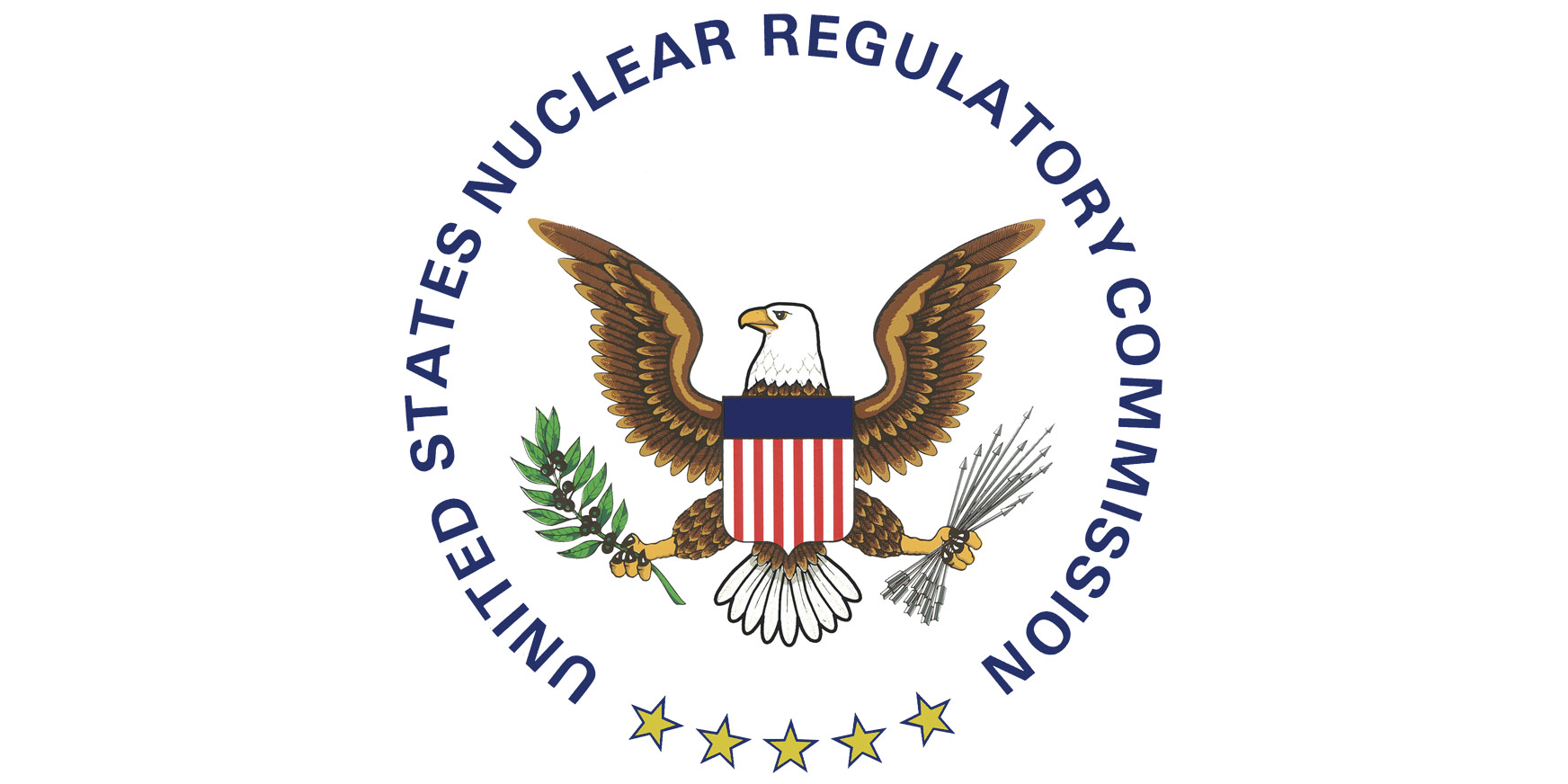
The Nuclear Regulatory Commission is looking for feedback on its proposed rule for fees for fiscal year 2025. The proposal was published in the February 19 Federal Register. The federal government's fiscal year is the 12-month period from October 1 to September 30.
The proposed rule includes instructions on how to submit written comments to the NRC. Comments will be accepted through March 21, 2025.
The Nuclear Regulatory Commission has updated its guidance for nuclear power plant owners and operators in estimating the cost of decommissioning their reactors. Licensed power reactor operators are required under NRC regulations to annually adjust the estimated costs (in current year U.S. dollars) of decommissioning their plants to ensure that adequate funds are available when needed.